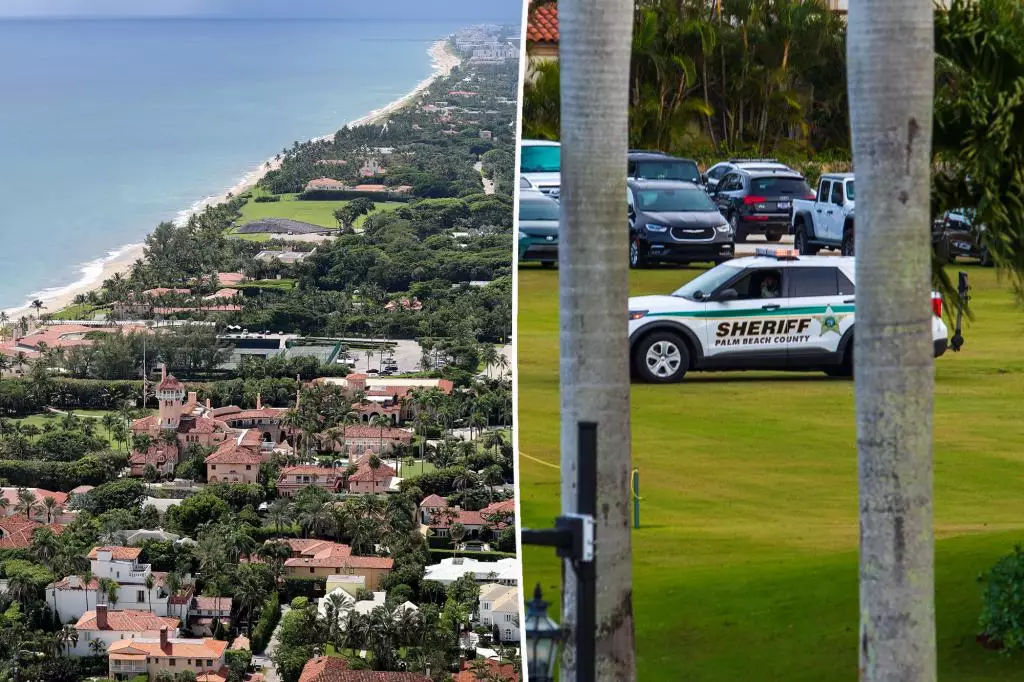The affluent enclave of Palm Beach, Florida, long celebrated for its opulence and prestige, is facing a troubling paradox: as multimillion-dollar real estate transactions surge, so too do concerns about safety and security. The influx of wealth has drawn attention not only from eager buyers and investors but also from those with potentially nefarious intentions. This seismic shift in the local real estate market has given rise to an increased focus on crime prevention, prompting local law enforcement to issue warnings to residents regarding the need for heightened vigilance.
In a town where it was once commonplace to leave doors unlocked, an unsettling shift is occurring. Sources suggest that the visibility of high-profile figures, including Donald Trump, has inadvertently attracted a range of opportunistic criminals. Local authorities have responded with advisories encouraging residents to secure their homes and vehicles, highlighting an uptick in car break-ins and home burglaries. This awareness of crime has escalated to the point where many Palm Beach residents, traditionally used to a relaxed lifestyle, now find themselves reconsidering fundamental aspects of their security practices.
Given the rising tide of anxiety, some residents have taken matters into their own hands, hiring private security firms to mitigate the perceived risk. Compounding these fears are high-profile incidents, such as the recent shooting of a CEO, which emphasizes the necessity for more robust security measures. With a lack of sufficient state resources, many have turned to security professionals from outside Florida, specifically from metropolitan hubs like New York and California, to reinforce their peace of mind. This trend underscores a broader cultural shift where personal safety increasingly dictates lifestyle choices—even among the wealthiest citizens.
Amid these growing concerns, Mar-a-Lago, Trump’s resort and club, has emerged as a fortified bastion of security. The venue’s precautions now rival those found at the White House, with multiple checkpoints and extensive protective measures in place. Notably, motor vehicles are subject to thorough inspections, aided by advanced tactics such as bomb-sniffing dogs and robotic surveillance units. Such measures reflect not only the personal importance of safeguarding a high-profile patron but also the intricate challenges posed by unregulated guest access, which shifts the security landscape into potentially chaotic territory.
The consequences of this evolving environment appear to create an air of tension among Palm Beach’s elite. Residents accustomed to a serene, secure lifestyle are now grappling with the realities of living in a glittering community that, despite its beauty, harbors the complexities associated with wealth and high visibility. As Palm Beach continues to attract affluent newcomers, the ongoing dialogue about crime prevention and personal security will undoubtedly shape the community’s landscape. These developments beg the question: as prosperity rises, will the price be a compromised sense of safety?
While Palm Beach remains a symbol of luxury and wealth, the need for enhanced security measures reveals that even the most affluent communities are not immune to crime. The paradox of newfound wealth and security concerns suggests a complex relationship between prosperity and safety, requiring residents to navigate their lives with both caution and resilience.

